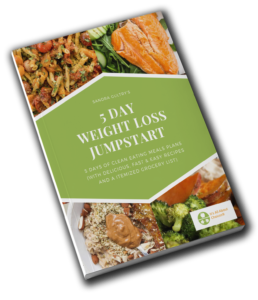Over the past year, many people have been furloughed from jobs or unfortunately permanently terminated.
Usually, the strongest food cravings hit when you’re at your weakest point emotionally. Many turn to food for comfort — consciously or unconsciously — when facing a difficult problem, feeling stressed or even feeling bored.
Read more about how emotional eating can sabotage overall health, and get tips to get control of your eating habits.
Gain control of emotional eating
Emotional eating can sabotage your weight-loss efforts, weight maintenance efforts and health in general. It often leads to eating too much — especially too much of high-calorie, sweet and fatty foods.
The good news is that if you’re prone to emotional eating, you can take steps to regain control of your eating habits and get back on track with your weight-loss goals.
Emotional eating, is eating as a way to suppress or soothe negative emotions, such as stress, anger, fear, boredom, sadness and loneliness, or just a subconscious habit – All of which many of us are experiencing right now.
All of this trigger negative emotions that lead to emotional eating and disrupt your weight-loss and weight maintenance efforts
What are some other Triggers For Emotional Eating?
Many people experience emotional eating at one time or another. It could show itself as eating a bag of chips when bored or eating a chocolate bar after a difficult day at work.
Emotions, such as stress, are not the only triggers for emotional eating. Other common triggers that people report include:
- Boredom: Being bored or having nothing to do is a common emotional eating trigger. During these times, having too much time that you’re not used to!
- Habits: These are often driven by nostalgia or things that happened in a person’s childhood. An example might be, having ice cream after a good report card or baking cookies with a grandparent.
- Fatigue: It is easier to overeat or eat mindlessly when fatigued, especially when tired of doing an unpleasant task. This is one reason why getting adequate sleep in very important!
- Social influences: Everyone has that friend who encourages them to get a pizza after a night out, go out for dinner or drinks after a difficult day, or as a reward for a good day.
I like to say ‘family’ and ‘friends’ can make you fat!
5 Ways to Handle Stress Eating
In order to get control of stress/emotional eating, you have to control your stress levels.
The best way to deal with stress is to address current situations head-on and, at the same time, learn to be prepared to handle stressful situations in the future before the problem and you’re eating behavior get out of hand.
These 5 steps can help you manage stress and avoid stress eating:
Know your stressors.
Identify the circumstances and emotions that lead you to stress-eat. These are your emotional eating triggers, and once you recognize them, you can take steps to avoid them or at least be prepared for them.
Exercise to reduce stress.
If you’re physically fit, you’re more resistant to the effects of stress. Since we are not able to physically go to gym, take advantage of online workout. Also try to increase the amount of walking, gardening, cleaning and other lighter forms of movement and exercise you normally do from day to day.
Reach out for help.
Talk out your feelings and your unhealthy responses to stress with close friends and family who can give you the support you need to get through tough situations. If you often feel guilt, shame or regret over your eating habits, you may want to speak with a professional counselor.
Develop a practice of mindfulness.
Prayer, Meditation, yoga, tai chi and other mindfulness-based exercises and programs help calm the mind and the body. When you are mindful, calm, and focused, you are better able to make smarter and healthier lifestyle choices.
Learn intuitive eating
Intuitive eating means paying more attention to the natural, internal hunger and fullness signals sent between your brain and your gut. These signals help you determine when, what, and how much to eat.
Summary
Emotional eating is a common experience and is not usually associated with physical hunger. Physical hunger is usually not as urgent or sudden unless it has been a while since a person ate.
Some people succumb to stress/emotional eating occasionally while others can find it impacts on their lives and may even threaten their health and mental wellbeing.
Sandra Recommends
Do you feel like you’ve tried every diet created?
After trying many diets you’re likely left feeling frustrated and disappointed because you can’t keep the weight off for good.
It can be incredibly tiresome to always feel like you’re starting over without any real change in your body.
If you’re struggling with weight loss or confused/overwhelmed about what to eat…
I’ve got you covered!
That’s why I created this 5-Day meal plan. In this easy-to-follow guide, you’ll experience:
- Surge of energy levels throughout the day (think 2-4pm typically crash n burn)
- Benefits of eating satisfying meals that will keep cravings at bay
- Waking up feeling refreshed, energized, and ready to take on the day
An added bonus is you will “Jump start Your Weight Loss & Boost Your Energy Levels”!
Click [HERE] to grab your free copy!
Another Sandra Recommends
<<KRYSTA, PLEASE UPDATE WITH CURRENT FB LIVE ON THIS TOPIC>>
Listen to the FB LIVE Replay for more insightful information on this BLOG.



